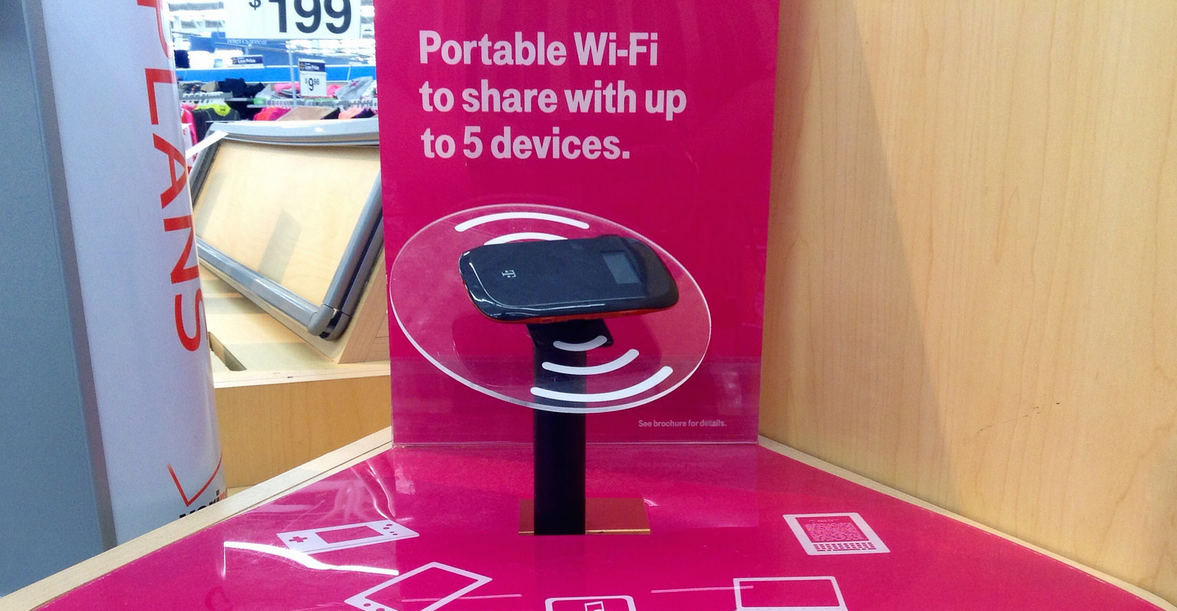Company Fined $750K For Blocking WiFi Hotspots At Convention Centers
According to a consent decree [PDF] filed by the FCC, the Commission received a complaint from a hotspot provider in 2014 that a company called Smart City Holdings — which operates large hotel and convention center telecom, broadband, and WiFi networks — was jamming the connections of certain people who used hotspots instead of paying to connect to their WiFi.
The FCC investigated and Smart City acknowledged that several of its venues — including convention centers in Cincinnati, Indianapolis, Orlando, and Phoenix — would identify hotspots that had comparable signal strengths to the Smart City networks, and then automatically transmit “deauthentication frames,” which inhibit the hotspot user from maintaining a connection between their hotspot and their other devices, to prevent them from working properly.
The FCC says that there is no evidence that Smart City was jamming these signals in response to any threats to its networks or users. The goal of the blocking, alleges the FCC’s Enforcement Bureau, was to drive exhibitors and visitors to these convention centers to pay a fee to access the Smart City networks.
Smart City did, after being told about the FCC investigation, tell its network managers to stop the deauthentication. But the company still must pay a $750,000 civil penalty.
“It is unacceptable for any company to charge consumers exorbitant fees to access the Internet while at the same time blocking them from using their own personal Wi-Fi hotspots to access the Internet,” said Travis LeBlanc, Chief of the FCC’s Enforcement Bureau. “All companies who seek to use technologies that block FCC-approved Wi-Fi connections are on notice that such practices are patently unlawful.”
The Smart City settlement is larger than last year’s deal with Marriott over similar allegations. In that case, the hotel mega-chain agreed to pay a $600,000 penalty after the FCC learned it had been blocking independent hotspot signals at its Gaylord Opryland Hotel and Convention Center in Nashville.
UPDATE:
Mark Haley, President of Smart City, has provided the following statement.
“Our goal has always been to provide world-class services to our customers, and our company takes regulatory compliance extremely seriously. We are not gatekeepers to the Internet. As recommended by the Department of Commerce and Department of Defense, we have occasionally used technologies made available by major equipment manufacturers to prevent wireless devices from significantly interfering with and disrupting the operations of neighboring exhibitors on our convention floors. This activity resulted in significantly less than one percent (1%) of all devices being deauthenticated and these same technologies are widely used by major convention centers across the globe as well as many federal agencies.
“We have always acted in good faith, and we had no prior notice that the FCC considered the use of this standardized, ‘available-out-of-the-box’ technology to be a violation of its rules. But when we were contacted by the FCC in October 2014, we ceased using the technology in question.
“While we have strong legal arguments, we’ve determined that mounting a vigorous defense would ultimately prove too costly and too great a distraction for our leadership team. As a result, we’ve chosen to work cooperatively with the FCC, and we are pleased to have resolved this matter. We are eager to return our energies to providing leadership to our industry and delivering world-class services to our clients.”
Want more consumer news? Visit our parent organization, Consumer Reports, for the latest on scams, recalls, and other consumer issues.


